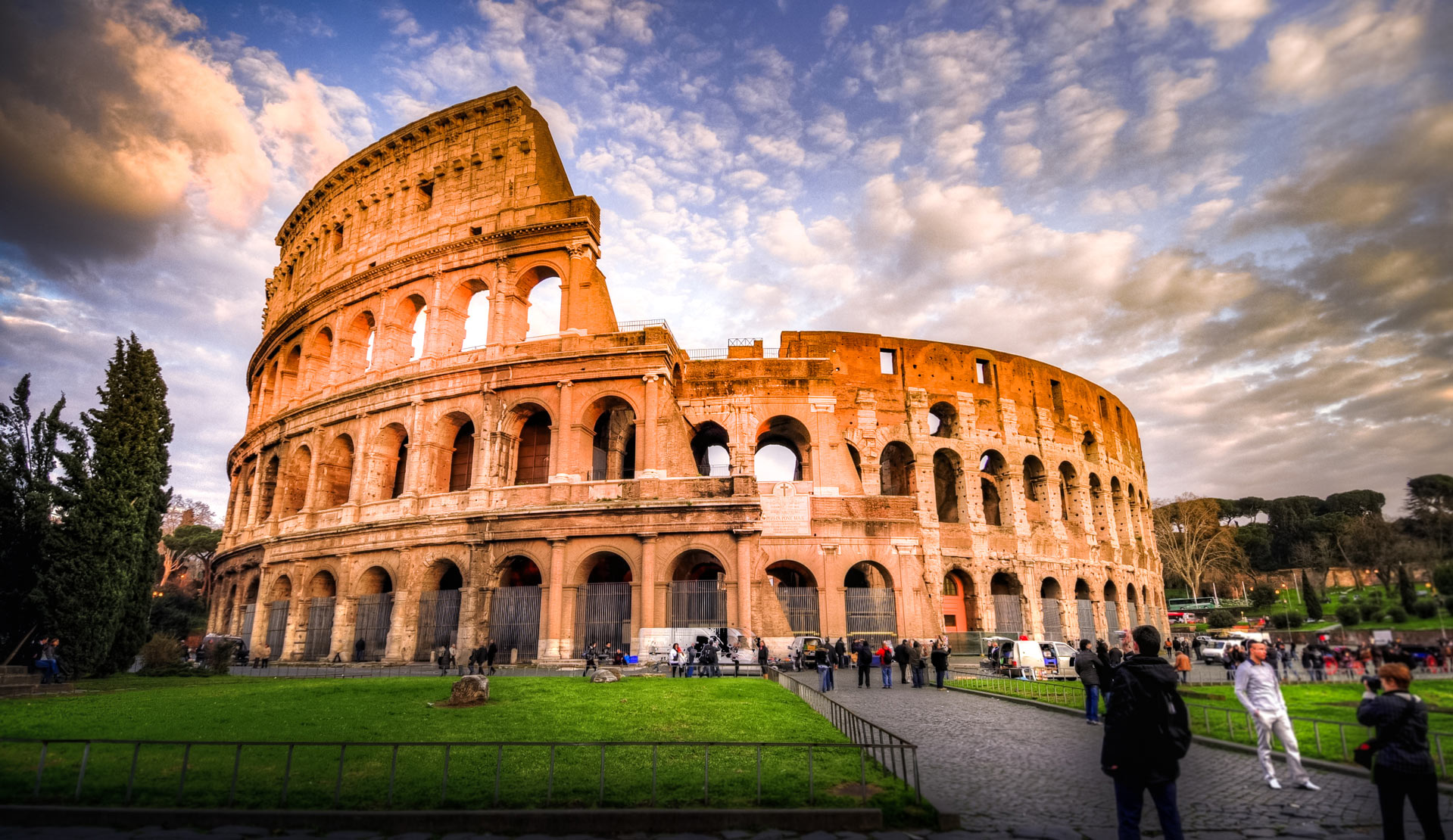Rome Babel - Echoes Of Ancient Voices
Have you ever considered how a grand city, a place of immense power and influence, can also hold within its very fabric a story of countless different voices, a sort of vibrant chorus of distinct sounds? It's a rather interesting thought, isn't it? We often think of Rome as this singular, powerful entity, a unified force that shaped a significant portion of the old world. But, if you look a little closer, it’s almost as if you can hear the echoes of a place where many different tongues met, where cultures mixed and mingled, sometimes harmoniously, sometimes with a bit of a rumble. This idea, the notion of "rome babel," really captures that sense of a grand historical stage where a multitude of languages and traditions came together, creating something truly unique.
It's not just about the literal languages spoken, though that was certainly a big part of it. Think about the various peoples who came to Rome, whether as conquerors, the conquered, traders, or just folks seeking a new start. Each group brought their own customs, their own ways of seeing the world, and their own distinct sounds. This constant flow of different elements meant that Rome, in a way, was always changing, always absorbing, and always presenting new challenges for how people communicated and got along. You know, it’s a bit like trying to make sure everyone can connect, no matter what their background, which is quite a feat for any society.
This idea of a "rome babel" is, in some respects, a lens through which we can view the past, and perhaps even our present. It helps us appreciate the intricate dance of human interaction when many distinct groups come together in one spot. It makes you wonder how such a powerful civilization managed to keep things moving forward with so much variety within its borders. It speaks to the ongoing challenge of making sure everyone can be heard, and that information, or even just basic instructions, can reach everyone, no matter their particular background or what sort of "system" they happen to be operating on. It’s a pretty complex picture, actually.
- Kanye West Bianca Censori Grammy Awards
- Jordan Chiles Medals
- How Did Bernie Mac Die
- Charlotte Hornets Games
- Chad Daybell Update
Table of Contents
- What is the idea of Rome Babel, anyway?
- How did Rome become a place of many voices?
- Can we see "system requirements" in historical exchange?
- The universal language of connection, perhaps?
- Adapting and evolving - a constant update?
- When things go awry - the need for a reset
- The ongoing conversation - help and guidance
- The legacy of a diverse past
What is the idea of Rome Babel, anyway?
The concept of "rome babel" is not about a single historical event, but rather a way of looking at the city of Rome through the lens of its incredible diversity. It suggests that, much like the famous biblical story of the Tower of Babel, Rome was a place where many different groups of people, each with their own distinct ways of speaking and living, came together. This gathering created a kind of beautiful, sometimes chaotic, mix of sounds and ideas. It's a recognition that even the most powerful empires are built upon the contributions of many different people, each bringing their own unique flavor to the overall experience. It's really quite something to consider, how all those individual threads formed such a strong piece of cloth.
A meeting point of tongues and traditions
Imagine the streets of ancient Rome, truly a bustling place, filled with sounds from all corners of the known world. You might hear Latin, of course, but also Greek, Egyptian, Gallic, and many other forms of human expression. This wasn't just about different ways of speaking; it was about different ways of thinking, different spiritual practices, and different everyday habits. This constant interaction meant that Rome was a living, breathing example of cultural exchange, a place where new ideas could take root and grow, often in unexpected ways. It's a picture of a city that was, in some respects, always in motion, always taking in something new, which is a pretty cool aspect of its history.
How did Rome become a place of many voices?
Rome's growth from a small settlement to a vast dominion meant it constantly absorbed new territories and, with them, new populations. This expansion was not just about land; it was about people. As new regions became part of the Roman sphere, their inhabitants, their customs, and their languages became part of the Roman story. This process was, in a way, a continuous layering of different elements, each adding to the city's complex identity. It was a natural consequence of its success, really, that it became such a melting pot of human experience.
The layers of culture in ancient Rome
Think about the way different cultural influences built upon each other in Rome. Greek philosophy, Egyptian religious practices, Celtic artistry – all found a place, sometimes adapting, sometimes being adapted, within the Roman framework. This wasn't always a smooth process; there were certainly moments of friction and misunderstanding. But, over time, these layers created a rich and varied cultural fabric. It's a testament to the city's ability to, you know, sort of integrate so much disparate material into a cohesive whole, even if that whole was constantly shifting and evolving.
Can we see "system requirements" in historical exchange?
When we consider the diverse peoples coming into Rome, it's almost like thinking about "system requirements" for a cultural connection. Just as a piece of software needs certain conditions to run properly, people from different backgrounds need certain shared understandings or adjustments to truly connect. For instance, before you can truly engage with a new culture, you might need to understand its basic principles, its customs, or its ways of doing things. This idea of checking for compatibility, of ensuring that the "operating systems" of different cultures can interact, is pretty central to how a "rome babel" could function. It's about making sure that the groundwork is laid for effective interaction, which is, honestly, a very practical concern.
Making sense of compatibility in a diverse world
Consider the need for different groups to find common ground, much like ensuring a program supports your particular computer setup. In a "rome babel," this meant finding ways for various legal systems, social norms, and even religious beliefs to coexist, or at least not clash too severely. It involved a kind of cultural negotiation, where some things were adopted, others adapted, and some perhaps set aside. This constant process of checking for fit, for what works and what doesn't, was a vital part of managing such a varied population. It's a bit like making sure all the different parts can, you know, actually work together, without too much trouble.
The universal language of connection, perhaps?
Despite the multitude of tongues in a "rome babel," there were always attempts to find common ground, a kind of universal language that went beyond mere words. This could be the shared experience of daily life, the common goals of trade, or even the unifying force of Roman law, which, in a way, provided a framework for everyone. Just as a set of instructions might be translated into many languages to reach a wider audience, the Romans, in their own way, tried to create systems that could be understood and followed by people from diverse backgrounds. It's a fascinating challenge, actually, trying to get everyone on the same page when they speak so differently.
Finding common ground in a "rome babel"
Think about how people find ways to communicate even when they don't share a native tongue. Sometimes it's through gestures, sometimes through shared interests, and sometimes through the very act of living side-by-side. In a "rome babel," the shared public spaces, the markets, the bathhouses, the forums – these were places where people from all walks of life interacted, creating a kind of informal communication network. This daily interaction, this constant exposure to different ways of speaking and being, helped to build bridges, allowing for a collective experience to emerge, which is, you know, pretty essential for any large group of people to function.
Adapting and evolving - a constant update?
A place like Rome, with its constant influx of new people and ideas, was always, in some respects, undergoing an update. It wasn't a static entity; it was a living, breathing system that continually adjusted to new circumstances. New customs were adopted, old traditions were reinterpreted, and the very fabric of society was always in motion. This continuous process of adaptation, of incorporating new elements and letting go of others, is a lot like how a system receives new versions to improve its functionality. It’s a pretty natural process for anything that wants to keep going, really, to keep changing and growing.
When things go awry - the need for a reset
In any complex system, especially one as diverse as a "rome babel," there are times when things don't quite work as intended. Conflicts arise, misunderstandings occur, and sometimes, the established ways of doing things just aren't effective anymore. In such moments, there's often a need for a kind of "reset," a return to basic principles or a re-evaluation of what's truly important. This might involve revisiting foundational laws, reaffirming shared values, or simply finding a way to clear the air and start fresh. It's a necessary part of managing any large and intricate group, you know, to have a way to get back to a workable state when things get tangled.
The ongoing conversation - help and guidance
Even with all the diversity and the occasional need for a reset, a "rome babel" always had mechanisms for guidance and support. There were legal experts, philosophers, and community leaders who offered advice, interpreted rules, and helped people navigate the complexities of life in a multi-faceted society. This continuous flow of information, of tips and explanations, was vital for maintaining order and helping individuals find their way. It's a bit like having a help center or a collection of frequently asked questions, where people can find the information they need to get along and make things work, which is, honestly, quite helpful.
The legacy of a diverse past
The concept of "rome babel" reminds us that the enduring power of Rome was not just in its military might or its engineering feats, but also in its remarkable ability to integrate and manage a vast array of different peoples and their unique contributions. This legacy of diversity, of a place where so many voices converged, continues to resonate today. It shows us that strength can truly come from a multitude of perspectives, even if that multitude sometimes creates a delightful, or perhaps challenging, chorus of distinct sounds. It’s a pretty important lesson, in some respects, about how different elements can come together to form something truly lasting.

The 40 Best Things to Do in Rome – Fodors Travel Guide

25 Best Things to Do in Rome | Places to visit and must see | Italy travel
/the-roman-coliseum-during-a-warm-spring-sunset-542105331-58f15ac63df78cd3fc763275.jpg)
How to Avoid the Ticket Line at the Roman Colosseum